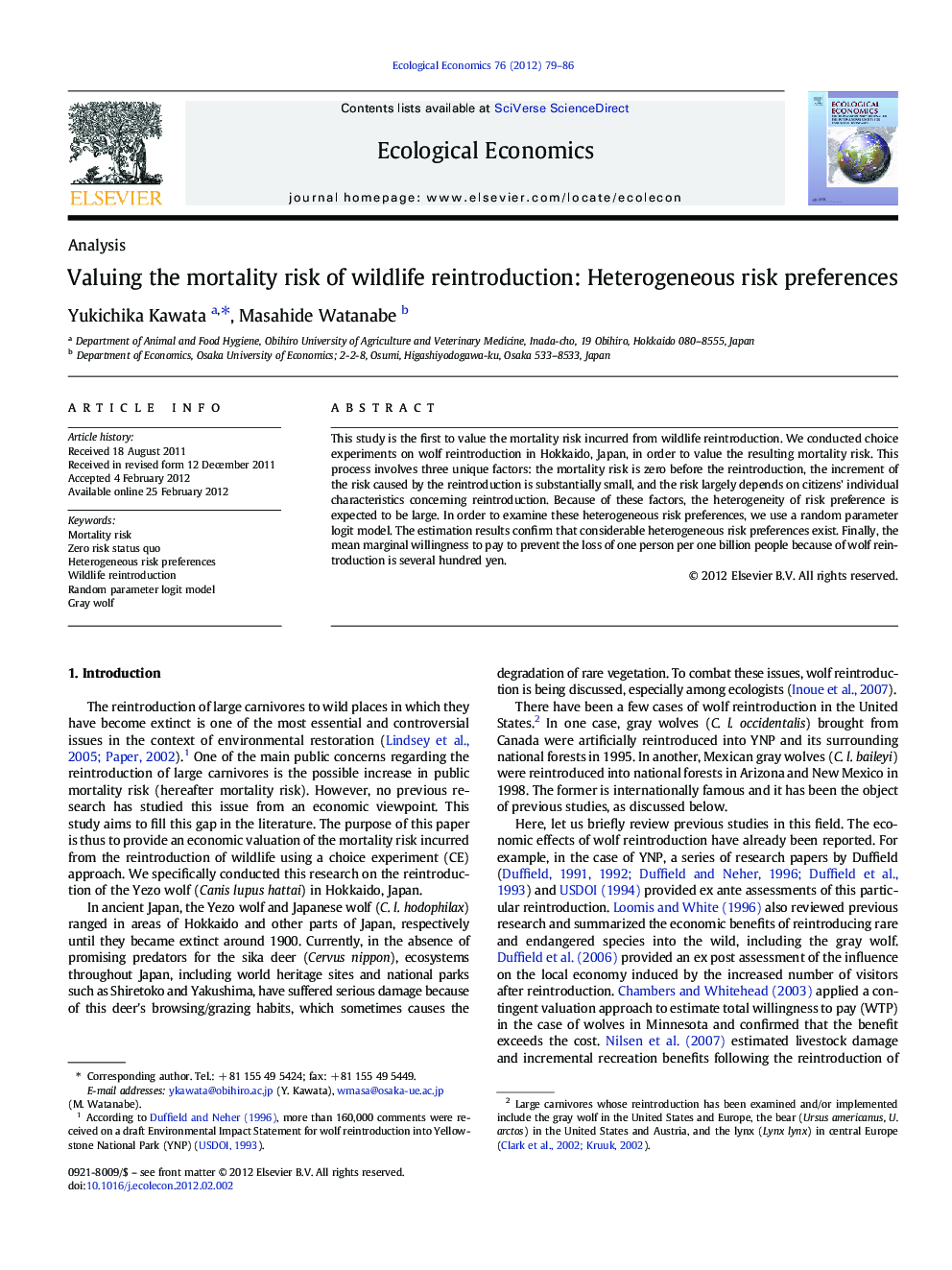| Article ID | Journal | Published Year | Pages | File Type |
|---|---|---|---|---|
| 5050372 | Ecological Economics | 2012 | 8 Pages |
This study is the first to value the mortality risk incurred from wildlife reintroduction. We conducted choice experiments on wolf reintroduction in Hokkaido, Japan, in order to value the resulting mortality risk. This process involves three unique factors: the mortality risk is zero before the reintroduction, the increment of the risk caused by the reintroduction is substantially small, and the risk largely depends on citizens' individual characteristics concerning reintroduction. Because of these factors, the heterogeneity of risk preference is expected to be large. In order to examine these heterogeneous risk preferences, we use a random parameter logit model. The estimation results confirm that considerable heterogeneous risk preferences exist. Finally, the mean marginal willingness to pay to prevent the loss of one person per one billion people because of wolf reintroduction is several hundred yen.
⺠The first study to value the mortality risk incurred from wildlife reintroduction. ⺠Zero risk before wildlife reintroduction and quite small risk increment. ⺠Estimation results confirm that considerable heterogeneous risk preferences exist. ⺠MWTP to prevent the loss of one life per 1 billion people is several hundred yen.
